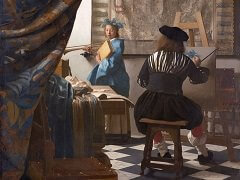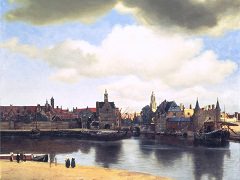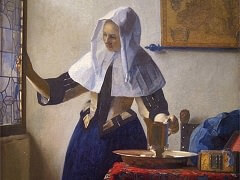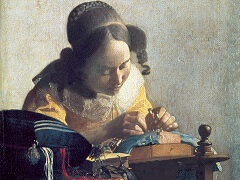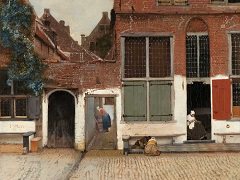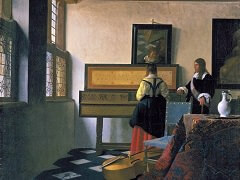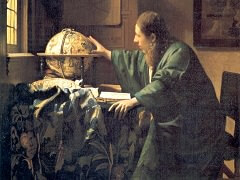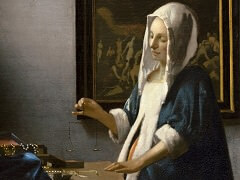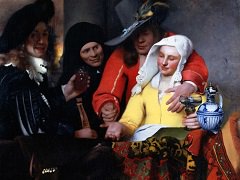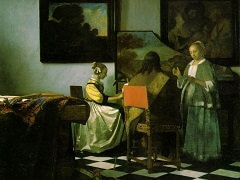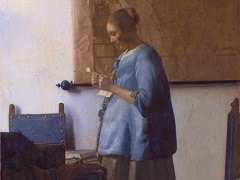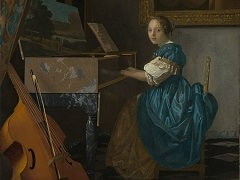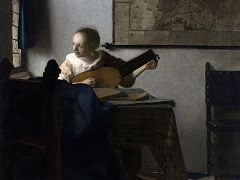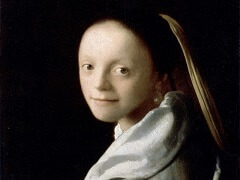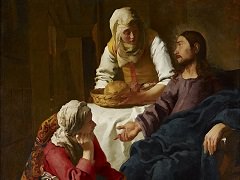The Geographer, 1667 by Johannes Vermeer
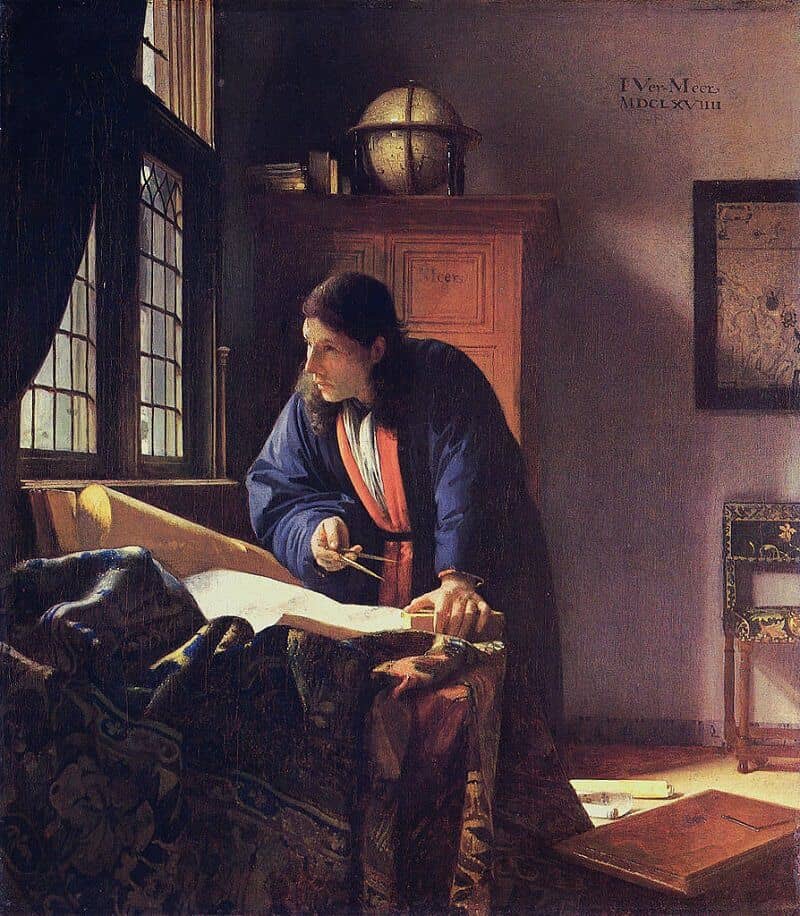
For much of the painting's early history (until 1797), it was owned together with The Astronomer, which it strongly resembles, and the two have long been considered pendants, although their
measurements are not identical. The paintings were not among the works in the Dissius sale of 1696, a collection apparently originally owned by the artist's supposed patron, Pieter van Ruijven, and the earliest record of the
painting is from 1713. Up until the late 18th century, they were referred to as "Astrologers".
Both of the men in the paintings, whether astronomers, geographers, or surveyors, seem to be thinkers as much as practical scientists. Of the two, the geographer is less conspicuously deep in thought but simply caught in an
abstracted moment. The pictures may have had a message which is now obscure, for nature then had meanings that would not be so evident to us, with signs of God's will to be seen nightly in the movement of the stars - or, for that
matter, in daylight, or for one Delft observer in the eel-like motion of protozoa.
Inspiration from God, indeed. Both Vermeer's astronomer and his geographer are dressed in a similar way, in scholarly dressing gowns. This was traditional wear for this sort of portrait, as painted by Gerrit Dou, Leonaert Bramer,
Rembrandt, and many Rembrandt followers, leaning aver his table while looking at a strange light that has appeared before his window. Whether Vermeer knew of Rembrandt's etching can't be determined, but his geographer is seen in a
similar pose, though without any alarming supernatural apparitions to catch his eye. Both of Vermeer's paintings demonstrate his usual sense of harmony and feeling for well-organized space, but we get a slight sense that,
whatever his motive for undertaking these pictures, his heart wasn't completely in it. So, although it is possible that Vermeer himself served as his own model here, it seems more likely that the painter -perhaps asked to paint
allegories of scientific endeavor - portrayed someone he knew with scientific concerns.


